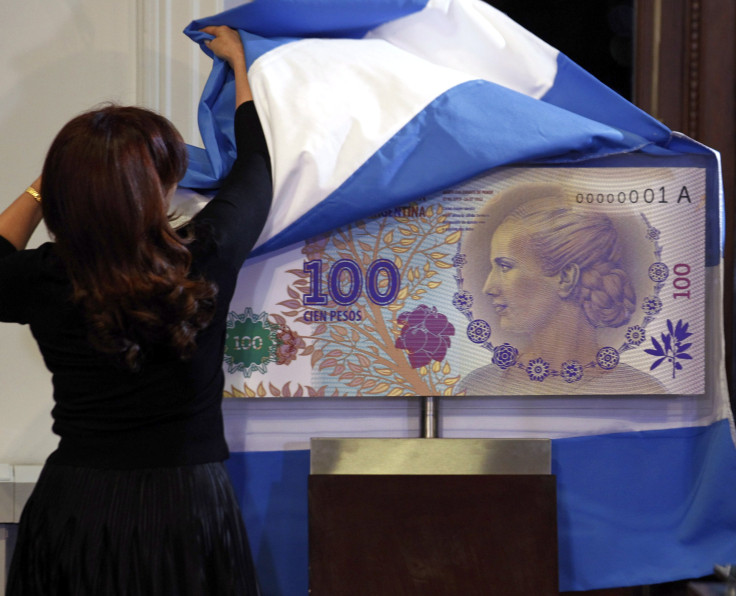Argentina Loses US Supreme Court Appeal In Key Hedge Fund Case, Now In Its 12th Year

UPDATE, 9:45 p.m.: According to the Wall Street Journal, the justices on Monday rejected Argentina's appeal of a lower-court ruling that said the country can't make bond payments until it compensates hedge funds that refused to accept restructured debt in the years after Argentina's 2001 default. Because of that ruling, the country has to decide by the end of June whether to reach a deal with the holdouts or default on its next debt payment.
But Argentina's president, Cristina Kirchner, has refused to negotiate with the holdouts, calling them "vultures," the Journal reported. In a Monday night address, Kirchner said Argentina wouldn't default on its restructured debt and would make its interest payment at the end of June. "Argentina has shown more than an evident willingness to negotiate [its debts]. But one has to distinguish between a negotiation and extortion," Kirchner said in a speech.
Original story:
The U.S. Supreme Court on Monday denied an appeal from Argentina over its bid to avoid a $1.33 billion payment to hedge fund creditors, despite the country’s claims that it can’t afford the payments without risking default. The decision augurs a severe financial threat for a nation whose once-mighty economy is now in recession.
It’s the latest decision in a legal battle lasting more than a decade between the South American nation and several U.S. hedge funds. The conflict began when Argentina defaulted on $100 million worth of bonds in 2001. Creditors say they are entitled to the money, but Argentine officials say they can’t afford it.
“Since Argentina lacks the financial resources to pay the holdouts in full while also servicing its restructured debt,” the country’s lawyers wrote in their most recent filing, “Argentina will have to face, objectively, a serious and imminent risk of default.” The Supreme Court provided no commentary.
The creditors, led by hedge funds Aurelius Capital Management and NML Capital Ltd., represent about 7 percent of all bondholders who participated in the deal. The remaining 93 percent agreed to accept one of two debt swaps in 2005 and 2010 at rates of 25 and 29 cents on the dollar, respectively.
The decision pushes Argentina closer to a technical default, said David Rees, emerging markets economist for London-based Capital Economics.
"This ruling is the last thing that the government needs given that the economy appears to have slipped into recession in the first quarter," he wrote, adding that "whatever the government intends to do, it needs to make up its mind quickly with a coupon payment due on 30th June."
The case, Argentina v. NML Capital, 13-990, has been locked in legal proceedings in New York courts for nearly a decade.
“It’s one of the strangest legal disputes ever to reach the Supreme Court,” wrote SCOTUSblog contributor Lyle Denniston last week.
“On one side, a foreign nation is accusing U.S. courts of trying to ruin its economy and weaken its military defense. Its legal opponents answer that the nation is an international scofflaw that won’t obey anything the courts do, anyway,” he wrote.
The legal fight is happening in American courts because Argentina had been selling bonds in the U.S. since 1994. Given its fraught economic history, which one U.S. court called “a diplomacy of default,” it promised that any resulting disputes would be settled under New York law.
Last August, the United States Court of Appeals for the Second Circuit in New York ruled that Argentina violated an obligation to treat all bondholders equally but the country’s deputy president Amado Boudou said the country would find a way to pay its creditors regardless of the U.S. court ruling, even if it meant selling the presidential palace in Buenos Aires.
Monday’s announcement upholds a 2012 ruling by U.S. District Judge Thomas Griesa that required Argentina to pay the $1.33 billion to those who rejected the debt swaps as well as those who agreed. That year Argentina’s economy minister Hernan Lorenzino vowed to fight the court order up to the U.S. Supreme Court.
© Copyright IBTimes 2025. All rights reserved.






















